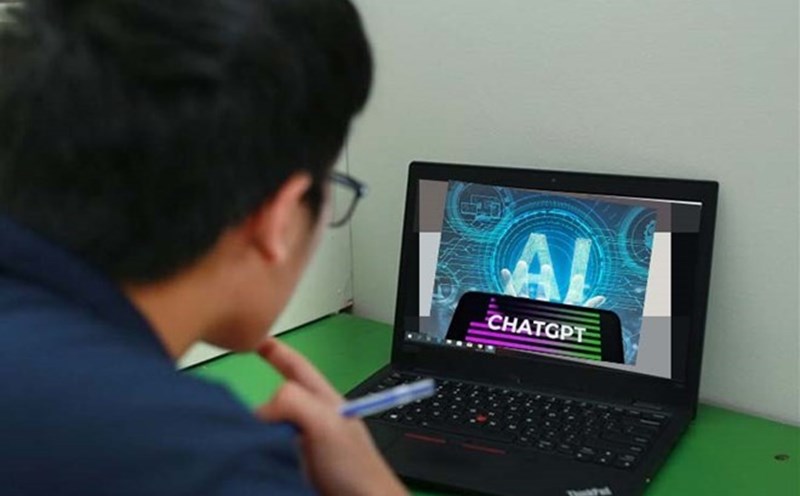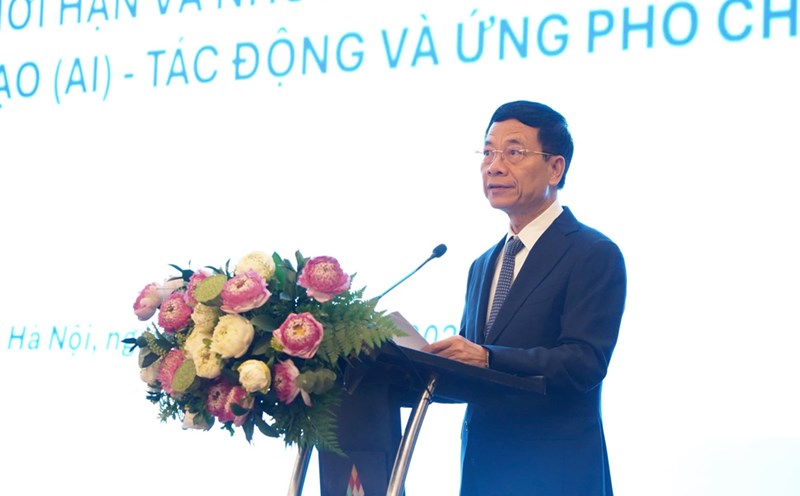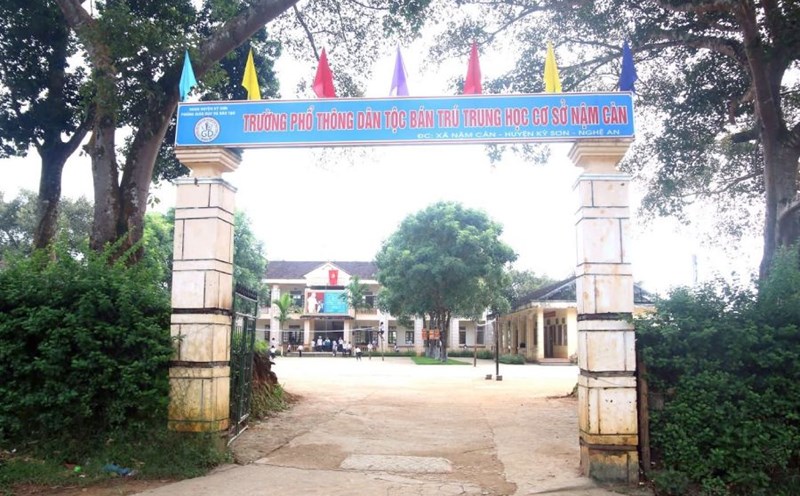In China, where technology is developing at a dizzying speed, artificial intelligence (AI) is not only changing the way of working but also penetrating deep into childhood. From classrooms, living rooms to the corner of the children's sleeping room, devices with sweet voices and bright eyes are becoming close friends, teachers, and even "guards" for them.
The explosion of AI models such as DeepSeek and Qwen has prompted the Chinese government and technology companies to enter the race to bring AI into education. Robots like AlphaDog who know how to talk, smart learning tablets or chatbots that tell sleeping worms are gradually replacing real relationships between people.
In the eyes of many parents, AI is a "color" that helps children learn faster, better, and more adherently. But researchers warn that behind that convenience is the risk of forming a generation lacking social interaction, dependent on technology and losing the ability to think for themselves.
AI floods into the classroom and family life
From Beijing to Shanghai, from the eastern industrial zone to the Shandong countryside, the wave of artificial intelligence is covering Chinese classes. At an elementary school in Hangzhou, the teacher who is teaching a lesson received suggestions from a small screen placed next to a board - where the AI system analyzes the concentration of students through faces. On each child's desk is a "smart" tablet capable of recognizing voices and automatically adjusting exercises to their personal level.
Not only schools, but local governments are also competing to make AI a part of the curriculum. Beijing has included Understanding Artificial Intelligence in the mandatory list for high school students. In Son Dong province, teachers must complete a training course on birth control tools, while Quang Tay is testing "AI teachers" - virtual sharves who can teach, answer questions and check homework.
The story of Wu Ling, 9 years old in Chengdu, is a vivid example for a generation that is growing up with robots. Every morning, the girl wakes up her classmate - the AlphaDog robot, developed by Unitree. AlphaDog has a clear voice, knows how to say goodbye to the morning, tell stories, check Math exercises, and even "care" if Wu Ling is lazy to study. In her eyes, a robot is not just a learning tool but her best friend.
Wu Ling's parents consider AlphaDog a "perfect guardian angel" - not tired, not on leave, and can accompany the child all day and night. With a price of only a fraction of a real tutor, robots have become a popular choice for many middle-class Chinese families.
This market is growing explosively. According to estimates by domestic research organizations, millions of AI learning devices are sold each year. Brands such as iFlytek, NetEase and Baidu launch tablets with integrated language models, allowing students to practice speaking, writing and Math in a "personalized" style. In large shopping malls, English-language robots and logical thinking training software attract parents.
But behind the excitement is a more complex picture. Many children spend up to 5-6 hours a day interacting with devices instead of real friends. The conversations, instead of What do you think?, became Answer the question later. A teacher in Nanjing commented: Students learn faster, but they also become calmer. When AI can answer everything, children ask less questions than ever.
Many utilities but not many risks
Artificial Intelligence has brought effective learning tools, but it is also quietly reshaping the psychology and way of life of Chinese children. As learning becomes a feedback chain between humans and machines, the line between intelligence and artificial intelligence becomes blurred.
According to research director Jeremy knox from the University of Edinburgh, the abuse of AI in education can cause children to Gradually lose the ability to think responsibly and rely on automated responses. Instead of exploring, many students learn to ask questions to get a high score - because the AI system evaluates based on keywords and sample structure. Educator Yong Zhao, currently teaching in Australia, added: If technology is deployed unevenly, AI will deepen regional gaps.
Many teachers complain that the current application of AI is still formal. They have to enter data, monitor the system and adjust their lessons according to computer instructions - a job that makes them feel exhausted rather than supported. A teacher in Vu Han said: "We spend more time with robots than with students".
Outside of classrooms, AI is gradually becoming a digital caregiver. The Doubao app, developed by ByteDance, can tell stories, lure children to sleep, and even chat in parents' voices. Many busy parents consider this a "savior", allowing themselves to rest for 20 minutes while their children laugh with the chatbot.
However, psychologists are concerned about the opposite. Children are being raised by perfect friends, always gentle, not scolding, not arguing. When they are born into a real world, where human emotions are complex and unpredictable, they can easily become disappointed, even angry. A study in Shanghai shows that many children find it difficult to talk to real people because they do not get quick and smooth responses like in chatbots.
A moral question is gradually emerging: Will a generation that grows up with robots still sympathize and understand others? Does a child who learning to say thank you to a machine really understand what gratitude is? Or do they just repeat the instructions they have been trained for?
However, it is undeniable that AI has opened up new opportunities in education - especially in areas lacking resources. In Guizhou, where many students have to walk for hours to get to class, the government has implemented an AI class program with the support of Huawei. Thanks to that, children can access high-quality lectures from top schools without having to leave the village. For them, AI is not a threat, but the first door to knowledge.
Controversy continues: Are we giving children a tool or a replacement for humans? The answer depends on how society defines learning in the new era. If learning is the process of accumulating data, AI does better than anyone. But if learning is an emotional experience, a collision, a mistake - that is still something that only humans can teach humans.
The future of education may not be a choice between humans or machines, but a way to harmonize both. When AI is used as an assistant, not a replacement, children can enjoy smart support while maintaining the joy of discovery, compassion and creativity - the things that make up human nature. The biggest lesson may not lie in the code lines, but in the way we teach children to master technology instead of letting technology shape people.











